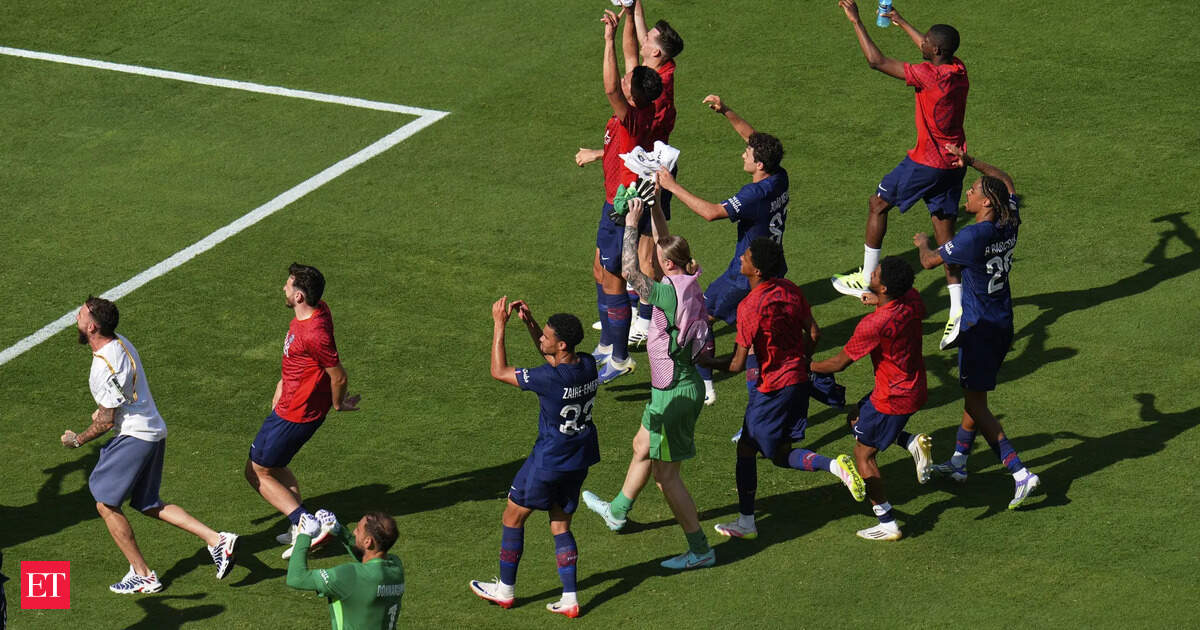The final of the Club World Cup is upon us, presenting a captivating clash between two European powerhouses: Paris Saint-Germain and Chelsea. This isn`t just a battle for a global trophy; it`s a fascinating juxtaposition of a team seemingly at the zenith of its powers against one still very much in the intricate process of reinvention and growth. Sunday`s showdown promises tactical intrigue and a test of contrasting approaches.
Paris Saint-Germain: The Reign Continues
Paris Saint-Germain have carved a path of near-total dominance through the Club World Cup, reinforcing their credentials as arguably the best team in the world right now. Their performance in the semi-final was a stark demonstration of their current form – a clinical 4-0 victory over Real Madrid that left the opposition defenders chasing shadows and committing uncharacteristic errors. This isn`t just about winning; it`s about *how* they win, employing a unique, high-intensity strategy under coach Luis Enrique that relentlessly wears teams down, regardless of their pedigree.
Throughout the tournament, PSG`s statistics paint a picture of overwhelming superiority: a formidable 16 goals scored to just one conceded. This solitary goal against them came during the group stage, suggesting Enrique`s system has delivered almost impeccable results, even deep into a long season. The team`s focus has shifted from relying solely on individual superstars to embracing a collective, team-first spirit. This tactical evolution has propelled them to a potential historic quadruple, having already secured the Champions League and domestic honours. As Enrique has highlighted, achieving this objective would etch a significant chapter in PSG`s history, a testament to players giving “everything at the service of the team” and their “insuperable play and generosity.” PSG enter the final as the clear favourites, carrying the weight of expectation and the momentum of a truly exceptional year.
Chelsea: A Young Team`s Measuring Stick
Tasked with the monumental challenge of halting PSG`s seemingly unstoppable charge is Chelsea. The London club presents a different narrative – that of a young team navigating the early phases of a significant project under manager Enzo Maresca. Unlike PSG`s settled core, Chelsea are still working with a considerably larger squad, using the Club World Cup partly as a vital opportunity to integrate and evaluate players for the future.
The tournament has seen Chelsea deploy 27 different players, a stark contrast to PSG`s 19. This reflects the ongoing competition for places and the manager`s need to assess his options ahead of a demanding season that includes a return to the Champions League. Among those making a strong case is recent acquisition Joao Pedro. His impactful performance and goal in the 2-0 semi-final win against Fluminense underscored his value, particularly his ability to unlock defenses that employ a `low block`. Maresca acknowledged that bringing in players like Joao Pedro was specifically aimed at addressing tactical needs against certain types of opposition. Facing a team of PSG`s calibre in a final provides a crucial, high-stakes test for this developing Chelsea squad, offering a valuable glimpse into their readiness to compete at the elite level and serving as a genuine measuring stick for Maresca`s project.
As Sunday approaches, the narrative is clear: Can Chelsea`s youthful energy and tactical adaptability disrupt the well-oiled, dominant machine that is Paris Saint-Germain? The Club World Cup final is set to be a compelling tactical battle, determining whether PSG can crown their year of supremacy or if Chelsea can lay down a marker for their own ambitious future.

